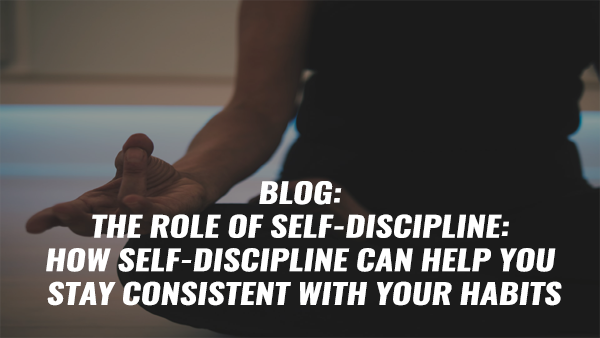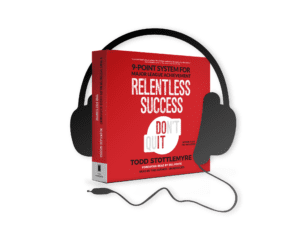Introduction
Self-discipline is a skill that will help you achieve whatever you want in life. It’s the quality that helps you stay focused on your goals, even when things get tough. It’s what motivates you to keep going despite setbacks and failures. If you want to achieve anything meaningful in life—whether it’s losing weight or making more money—you need self-discipline.
Disciplined people are motivated.
Let’s start with the basics. Motivation is the reason you do what you do. It’s the reason that drives you to achieve your goals and take action towards them. It’s also the reason why people are willing to put in the work required to reach their objectives: because they’re motivated by something beyond themselves!
But what exactly does motivation mean? In short, it means having a strong desire for something or someone (e.g., success). When we talk about being motivated by something else than ourselves–like our passions or values–we call this extrinsic motivation (also known as external). Extrinsic motivation comes from outside of ourselves; it’s something external that motivates us internally (i.e., internally-generated). On its own though, extrinsic motivation isn’t enough for achieving long-term success because it only lasts until we see results or get bored with whatever made us want those results in the first place; then there needs t o be an internal force driving us forward too: intrinsic self-discipline born out of discipline itself!
They learn to be aware of self-sabotaging behavior.
Self-sabotage is a common problem, and many people don’t even realize they’re doing it. They think that they are just lazy or procrastinating when in reality they are engaging in self-sabotaging behavior.
The first step towards avoiding self-sabotage is to be aware of what it looks like and how you can recognize it in your daily life. Here are some examples of things people do that could be considered self-sabotaging:
- Saying “I’ll start tomorrow.” (I’m not ready yet)
- Putting off tasks until the last minute because you feel overwhelmed by the number of things on your plate at any given time
Disciplined people use positive self-talk.
Positive self-talk is a powerful tool that can help you stay disciplined and reach your goals. It’s easy to see how it can give you the motivation to overcome challenges, improve performance, build confidence and take action on ideas.
- Overcoming challenges: When facing obstacles in life or work, positive self-talk will help you stay motivated so that you don’t give up when things get tough. For example, if your goal is weight loss but eating healthier foods isn’t working out for some reason (maybe because they’re too expensive), then positive self-talk would encourage you not to give up on this goal even though it seems impossible at first glance! Instead of giving up completely on eating healthier foods because of cost issues (which would lead nowhere), try finding cheaper alternatives instead like frozen fruits instead of fresh ones; canned tuna instead raw fish etc.. Just be creative!
- Improving performance: Positive affirmations like “I’m capable” or “I’m smart enough” are great ways for improving performance because they build confidence within ourselves which leads us towards success rather than failure when taking action towards achieving something important.”
They look for ways to get things done more efficiently and more effectively.
You’ll have to be willing to look for ways to do things more efficiently and effectively.
In other words, a person with self-discipline looks for ways to get things done in a different way than they normally do. They don’t just repeat the same actions every single day without considering whether there is any other way they could accomplish their goals in less time or with less effort.
In fact, if you’re reading this article right now, then chances are you already know that it’s important for us humans not only our own well-being but also our productivity as well. We need structure in our lives so we can focus on what matters most at work or home; otherwise our minds will wander off into oblivion (which often results in stress). But having too much structure can also be bad because then nothing ever changes! This means your life would become boring very quickly if every day was exactly like another one before it–and what fun would THAT be?!
They are willing to take on challenges and learn how to solve their own problems.
Discipline is the ability to delay gratification, and it’s a trait that many successful people share. Successful people are willing to take on challenges and learn how to solve their own problems. They’re not afraid of asking for help, even if they think they should be able to figure things out on their own. They want to grow as individuals, get better at what they do, and improve themselves every day.
They check themselves continuously throughout the day, making sure they stay focused on the right priorities.
Self-discipline is about being aware of your own behavior. It’s about being aware of the consequences of your actions, and ensuring that they align with your goals.
It’s not just about controlling yourself; it’s also about knowing what to do in order for you to reach those goals. And it means understanding why these things are important enough for you to prioritize them over other distractions or temptations along the way–and then doing so!
For example: You want to lose weight so that you can feel better physically and also fit into clothes better (and maybe look good on dates). So instead of going out with friends when they invite you out for drinks after work every day until 9pm (which could easily lead into 10pm), decide instead that 5pm is plenty late enough at night before calling it quits on socializing and heading home early so that tomorrow morning will come sooner than expected…but still giving yourself enough time after waking up so as not miss class altogether because then there would be no point even showing up since nothing would get done anyway.”
They know how to focus their attention on one thing at a time.
One of the most important things about self-discipline is that it allows you to focus your attention on one thing at a time, instead of trying to do multiple things at once.
If you’re trying to work on a project, but also checking Facebook every ten minutes or answering emails in between tasks, then it’s likely that your work will be affected by this multitasking and become less efficient as a result. When someone has good self-discipline skills, they know how and when not only what tasks need their attention but also how much time should be spent on each task without switching gears too often or moving onto something else before finishing their current task first
They step out of their comfort zones to grow as individuals.
Self-discipline is the ability to control your emotions and impulses, even when it’s difficult. It’s what allows you to stay focused on what matters most, even when there are distractions around you.
Self-discipline also means learning how to manage your time effectively by saying no when necessary and prioritizing tasks according to their importance. Self-disciplined people know how important it is for them not just as individuals but also as part of society at large: they step out of their comfort zones so they can grow as individuals; they check themselves constantly throughout the day making sure they stay focused on the right priorities; they know how to focus their attention on one thing at a time (instead of multitasking).
They visualize success as they complete each task.
Visualization is a powerful tool for staying consistent with your habits.
When you visualize success, it can help motivate and inspire you to keep working towards your goal. It’s important to visualize yourself completing each task that needs to be done in order for the end result or outcome of what you want achieved. This will help keep your motivation high throughout the process so that there are no obstacles along the way!
They schedule time for exercise, rest and relaxation activities that help them stay calm and focused.
Self-discipline is an essential skill that helps you stay consistent with your habits.
They schedule time for exercise, rest and relaxation activities that help them stay calm and focused.
When you’re feeling stressed or anxious, it’s important to take a few deep breaths and relax your mind and body. You can do this by taking a walk around the block, meditating for 10 minutes, making tea or coffee (or both), listening to music with headphones on while sitting in front of the TV–there are many ways! The point is that when life gets busy it’s easy to forget about yourself; but being able to practice self-care regularly will help keep you sane when things get hectic around work or home life.
Those who are disciplined have learned not to give up easily when things become difficult or challenging.
It’s important to understand that self-discipline isn’t the same thing as willpower.
Willpower is a finite resource and can be depleted when you’re faced with difficult tasks or situations. For example, if you have trouble waking up early in the morning and decide to set an alarm for 6am every day so that you can get up earlier than usual, your willpower will run out after a while because it takes so much effort on your part to get out of bed each morning at 5:59am instead of 6:01am (or even worse).
Self-discipline refers more generally to a person’s ability not only resist temptation but also complete difficult tasks no matter how challenging they may seem at first glance. Those who are disciplined have learned not give up easily when things become difficult or challenging; instead they persist until their goal has been achieved by continuing their efforts despite setbacks along the way
You can develop self discipline if you make it a practice.
Self-discipline is a skill.
You can learn it, practice it and get better at it.
It’s not something you’re born with–you have to develop self discipline as a habit by practicing the skills of self-discipline every day. Practice makes perfect! Self discipline is all about being consistent with your habits so that they become second nature to you.
If you want to be successful at anything in life (including developing good habits), then it’s important for you to have good levels of self discipline because this will help keep your motivation high when things get tough or difficult for whatever reason(s).
Conclusion
If you really want to develop self-discipline and stay consistent with your habits, you need to make it a practice. The more often you do something, the more likely it will become part of who you are–and that means being disciplined can help anyone become more disciplined!









